Talk shows. They’re everywhere. Every channel in every country has them. Some are controversial, others are world renowned and some are plain lousy. Pakistan too has hundreds of talk shows broadcast on Urdu, Sindhi, Pashto, Brahvi and Punjabi channels. There are also talk shows on the English language PTV World.
A broad categorization of talk show subjects is as follows:
• National politics
• National security and diplomacy
• Economy and finance
• Health and nutrition
• Religion and culture
There is no questioning that discussion on national politics dominates the domestic discourse in Pakistan. Each day, primetime shows invite representatives of political parties to share their views on recent developments. These programs mostly end up as verbal brawls garnished with insults, ridicule, mockery and humiliation. The average viewer sitting at home is either bemused or simply amused at the circus taking place on air. The worst part is when such activities of mutual insults is aired live without editing, often resulting in severely embarrassing results. Some politicians conveniently forget they’re on air and they issue some of the choicest swear words to their rival.
Talk shows are a win-win for the media group (more ratings attract more advertisements) and political parties (increased visibility for the audience). The ultimate loser is the common man, whose mind has been raped by repeated stupidity and hypocrisy. Hypocrisy in the sense that it has been observed on several occasions that politicians who malign each other so vociferously on air return back to their friendly terms during commercial breaks or when off air. When some of them are asked about why they adopt this two-faced attitude, they simply reply “Politics is politics and friendship and friendship”.
Let it not be forgotten too that these very “friendly shows of make-believe adversity” entice followers of each political camp to have negative sentiments for the rival. For example, if a representative of Party A is arguing with a representative of Party B, they might be acting for the sake of politics on screen but behind the TV screens, in homes and offices, followers of both parties will harbor increased hatred for the other.
The result? It is visible all around us. A highly polarized society compartmentalized on political fault lines. Today, particular city sectors or townships are categorized as “voters of Party A” or “home ground of Party B”. How and why did this development come about? Why are the apolitical/neutral citizens included in this senseless labeling?
People have a tendency to follow with great interest and care what their leaders say or do on TV. When local politicians resent each other so much, they don’t even unite on issues of national importance in which one would otherwise expect them to reach a consensus. There a few exceptions of course, such as the motion against sending troops to Yemen. In fairness, that resistance was more the result of a particular sect’s lobbying directed by its clergy than it was a political decision.
Perhaps the foundation of each debate on talk shows is the dissection or, putting it rightly, “mutilation” of the given subject. What is meant to follow a given direction is blown up into smithereens with no meaningful conclusion that can be extracted at the end.
This daily engagement in nonsensical small talk has desensitized the audience and led to increased bigotry. It manifests itself in many ways, most notoriously the social media where “trolls” belonging to party loyalists viciously defend their party leadership and policies (more loyally than the king himself) and, with the same intensity, mock their adversaries. It won’t be an exaggeration to say that the source of many societal riots, chaos, intolerance, disorder and even killings can be traced back to several talk shows. Party followers, most of whom are jobless and have ample time to be activists, get provoked easily.
The politicians who they fight for are one and the same among themselves. They are performers in this ‘social circus’. Each day they put on make up, humiliate each other with foamy mouths in anger then catch up later for drinks in their favorite club. The talk shows they appear in facilitate them in giving ‘lollypops’ to the audience. The sensible ones in the audience will surely switch channels instead of wasting their times.
Collectively, the biggest damage which this talk show culture has inflicted upon our society is the misprioritization of national issues. Take the example of the US and China where human security, economy and education are give first priority. In Pakistan, politicking, infrastructure and real estate are given more importance.
The situation is indeed damning.
Conclusion
Priorities should be re-assessed. To expect the present government to take the initiative is futile. A recent report revealed that the premier’s daughter is actively leading a “Strategic Media Communication Cell”. This is one example which shows the civil leadership is more interested in popularity growth instead of GDP growth.
Our society is ‘dumbing down’ every day because common sense is becoming increasingly uncommon/. Almost every issue somehow or the other ends up revolving around petty party politics and what some Tom, Dick or Harry said or ‘would have said’. (No) thanks to talk shows, politics has become everyone’s favorite cup of tea, regardless of the fact whether they even read the morning paper each day.
Desederius Erasmus was quoted as saying, “In the land of the blind, the one-eyed man is king”. I think it’s safe to say that in our case, we have lots of kings. And surprisingly, none of them are one-eyed.
image credit: wikipedia.

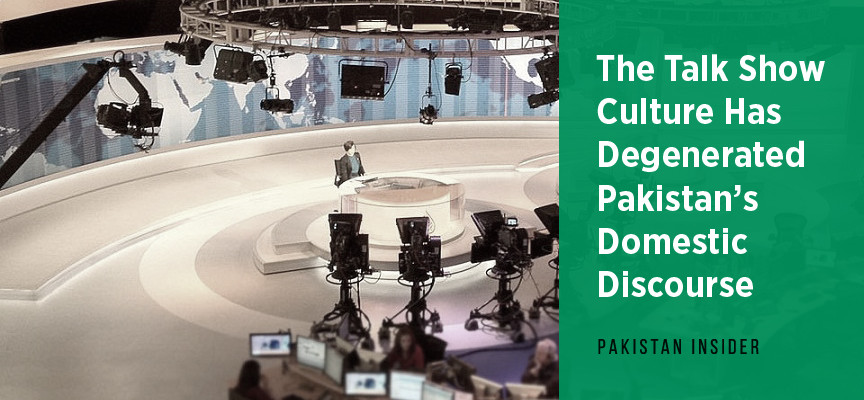

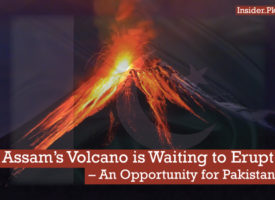
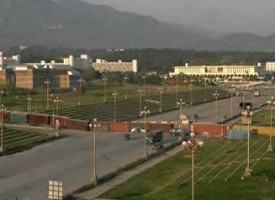
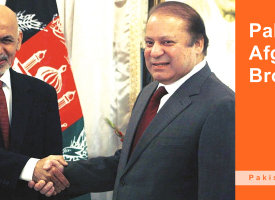

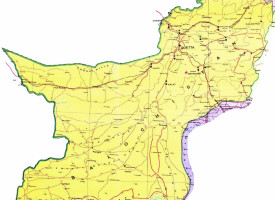
No comments!
There are no comments yet, but you can be first to comment this article.